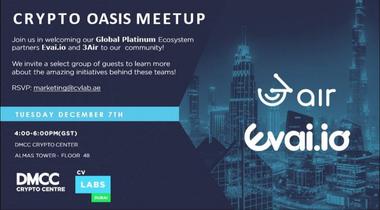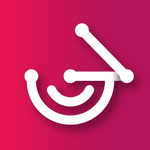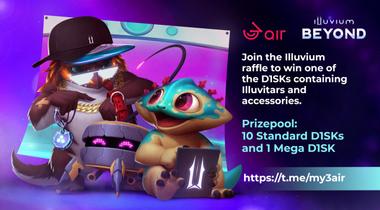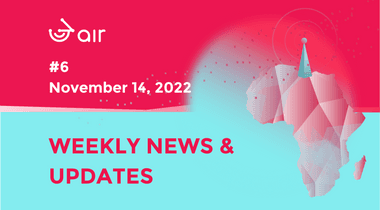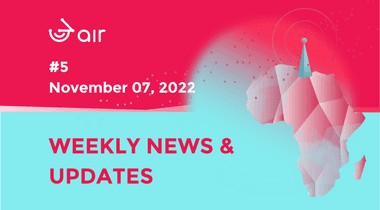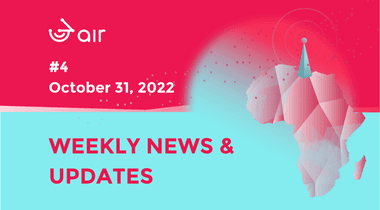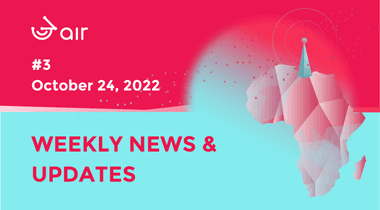This is a transcript of the presentation given by Sandi Bitenc on 3air on 7th of December 2021.
Sandi Bitenc: 00:00
I’m the CEO here. And I need to send always my picture when I send an email to someone, because else I get a reply. Miss Sandi. But it’s short for Alexander.
00:20
A bit about 3air. So what 3air actually is, we are delivering so what 3air, because we are delivering three services through air. And that’s broadband internet connection, digital TV and IP telephony. So that’s how we are in come about. And we are a very happy Platinum Partner of CV labs Global. So thank you, CV labs for supporting us so much. It really makes a difference.
00:47
So, a bit about the internet. So our focus is on the developing countries. And right now we are focused on Africa. Why, because in Africa, there really is not a lot of broadband connectivity. So there are around 80% of people altogether using internet. So broadband or mobile. And that’s 20%, actually. Being broadband is really tough. So we have here, Nigerian, all Sub Saharan Africa, they’re below 1%. And the world average right now sits at around 15%, just a bit above. And all the developing countries are there, about 30. Mostly also about 40% of broadband connection and that’s what we actually want to change. To think a bit about how you live your life nowadays. So what you first thing in the morning, when you go to the toilet, no internet. Because you need to check your social media and so on. So most of us use it also during our breakfast. And during pauses. While we are driving. It’s unimaginable right now that you wouldn’t have internet, right. And unfortunately, this is still very much the thing in Africa for majority people. What you can do with the internet, given so many high speed internet and stabilator. And I’m not talking about 2G or 3G we all know that if we fall into those 2G or 3G, you cannot do anything anymore, right now. It’s even hard sometimes to open up a single web page and do a Google search. But for instance, right now, we are live streaming here to YouTube. And I’m telling you this, and you’re not even making it, it’s normal. But it’s actually a bit of a miracle. And we’re trying to bring that miracle to Africa, in developing countries there it’s not used like this. So what you can do, for sure, one of the big things is banking and payments,. They’re not only without internet connections, they’re also without bank accounts. And the banks are not doing the job right out there. So even if they’re present there, they won’t give you a bank account. And, maybe you don’t have any ID. There’s a lot of people also without proper identification in Africa. And watching can also change this for the better. We have E healthcare. Education is really, really big problem. Imagine, a child being able to educate themselves on a really high level, you have so many free education right now on the internet. And then, he grows up, gets a job. How many jobs now, today? Everything is almost online already. So why couldn’t such a child then also get a job at Google or apples? So that’s what we call it empowering and providing equal opportunities.
04:19
And just to help you a bit to understand what we are doing, and why there is no internet in Africa. It’s just because the cities, the big cities, they actually grew too fast. There was nobody who was thinking at that point to lay cables. So there is no cable infrastructure and the signals are so vague and so chaotic. You cannot just go and stop traffic there, dig the trenches and make the cables. Even if there will be somebody willing to do it is always never happened. And there was also the thing that this is really expensive. In 2019, the World Bank estimated that it will take 100 billion dollars and more than a decade to actually be able to cover most of Africa, to get it on speed to the world average level. So this is also what you’re trying to change.
05:17
First of all, I would like to think about 3air in two ways. So one thing is that we are providing the infrastructure there. Building out the infrastructure that can provide those services. And on the other hand, also building out a blockchain based platform that will allow people to actually consume those services. So in a sense, you’re driving the adoption of our own platform. So we know which end users we are targeting, and how we’re going to get. Our solution in regards to the infrastructure is wireless. So what we can do is actually setup a tower, and that tower can connect up to 50,000 users 50 kilometers away from the base station. And we have field proven that we can deliver over one gigabit per seconds our broadband connection. And same towers and everything is same, we can also transmit up to 300 digital TV in HD quality. And we can actually distribute it inside our own system. And that allows us to cover a lot of costs. To give you a bit of a perspective for a mobile tower, so a mobile tower will connect around 200 to maybe 500 clients through it. And the ranges are between one and two kilometers. So that’s the big difference. And of course, the speeds are far apart.
07:01
And then the second thing that we are doing is and that’s how we actually came about is that we started building out in the infrastructure and being an ISP provider in Sierra Leone. And what happened is that once you’re getting new clients in, they were coming to our offices each month. And they’re all coming not because they have complaints, but because they have to pay to get the next month subscriptions. And it’s impossible to scale a business like this. So this is when we are thinking when we were started thinking how to actually manage this. And we have two guys now that are going around with notepads and collecting money, but then they get robed. They get robed a couple of times already. So that’s also not an option. And then of course blockchain was the first thought, and we started developing. And once you are thinking about how we want to do it, then the whole theory is to come out. So it came out of a need for payments. And actually also for because of identification. A lot of our users identify themselves with a business card that’s actually repeated there in Sierra Leone, a business card. So there’s really a lack of proper identification. So we also said we want to do digital identities for all the clients that we have, that potentially can also regrow the CRM system and they can start using those entities also elsewhere.
08:50
Right now, we are already also giving our clients some payday loans. And we are noticing some similarities. And we think that we can also manage a micro loan system. And with enough data, we can start opening up micro loan system up to outside investors and getting more micro loans to grow the local businesses. It will also get us more clients. The whole blockchain is set to be fully decentralized at one point. So the token will be a big governance token that will first have the hand over the community poles. The community poles can be used in two ways. So a part can be burned and the second part can use to fund the loan projects. Here are some projects that have really big potential to become your clients in the end or they’re really good for growing the local economy. We have two really big things, we think they are really big things in our platform. And one is, we call it on your own hardware. And what we do here is when clients come to us, and they want us to connect them to the internet, we need to go to them, we need to install some hardware there. They need some routers, or switches or modem or something like that. So, usually, the ISP always provides this, and its lease so it’s not theirs. But it cost for the company, because even if they get that back, they cannot reuse it. So we cannot just take back a modem or router from a client, and then give it to somebody else. You also know when you went and connected the person, we always get a new modem or router. So we’re thinking how to make this work for everybody involved. And we said, Okay, we’ll lease the hardware to our clients as usual. But we’ll also give them some tokens, and the tokens are going to be available at a lesser value than the hardware. Those tokens will need to be staked for at least a year. So after a year, the client can decide what they want to do with it. If the value of the token grew and it’s bigger than the value of the hardware, they will probably say, Okay, I want to unstake. And when they aren’t saying they need to repay the company, the hardware, and the rest is theirs. So the company now gets back paid for the hardware. The user has ownership over his hardware. He might also get some tokens for free. And we have an educated clients. So we are really educating people how to use 3air. So this is what this is actually about.
12:02
And the other thing is, we are going also into bandwidth sharing. There are a lot of projects right now trying to do this. But we think that they’re doing it in a unsustainable way. And we think this because we are actually also the ISP behind it. So we know what it means for an ISP if people just start on uncontrollable sharing their bandwidth. And what will happen is that the bandwidth or either internet prices will go up dramatically, or the ISPs will just shut down the people who are sharing their bandwidth. And also in each contract from an ISP, you’ll see there’s a clause that they can just shut you down, if you don’t use your bandwidth properly. Why? Because every bandwidth that you get is actually shared already, then you’re re sharing it. So the ISP, they buy from the backbones. Let’s say you buy 100 megabit per second, and then they sell 200 clients 10 megabit per second. So it’s like 10 times more than that they are buying. That’s possible only because not everybody is using their bandwidth influence .And now if everyone is just start sharing the bandwidth, the usage will go up. That’s not going to be sustainable. So we thought we’ll make a system that’s going to reward everybody. So we have there, the ISP that actually provides the internet, they need to get a revenue share from it. Ye have somebody that operates the access point. So he needs to get a cut. We have the token holders that will ensure everything.
13:56
We are in Africa. We are giving out a hardware worth of $1,000. It will probably not be there anymore next time, very likely. So we need somebody who take responsibility and actually pay up if that happens. So the access point provider needs to be part of this. And also then the token holders and also if something breaks down, there needs to be funds that will get that compare. So this is how the token holders come into the game, staking their tokens and also shared vendor of the revenue stream. And of course the users can then connect. They have either free internet at the maximum providers who wants to give them like for instance, going to Africa, going into some shopping malls. There is no internet. You’ll see maybe in the newer one, you’ll see some Wi Fi connection, but you connect to the Wi Fi there. And the same is in restaurants, shops everywhere. So we also thing this could be really good for local businesses, you actually get free internet. And the users will visit. It will be growing. Wherever they go, they’ll be able to connect to the internet. And also for tourism. So about our market potential, we are entering Africa. So right now we are already in Sierra Leone. The next target countries are DRC, that’s right now being privately funded. So this is going to be probably number two, and the Nigeria is going to be number three. So it’s going to be a bit different. But actually, Nigeria is considered still the gold market of Africa. And we’ve moved a bit through the data. Right now, currently, the broadband penetration is 0.04% in Nigeria. And this makes a revenue of $153 million. So if we bring broadband connectivity up to 1%, penetration rates, there’s a yearly, or now annual revenue of $3.8 billion. And at Broad average of 15.7%, there’s a $16 billion yearly revenue. And we believe we can do this. But it can go to the 60 billion. We can start connecting the first lines in six months. That’s what you also have done in Sierra Leone. Our competition right now is really only mobile. Of course, mobile is getting a bit better right now. But at this point, there’s 9% 4G. Everything else is less than 4G. And if you want to even watch a movie or screen, something you need, at least 4G and that’s good. And usually when you’re there, it’s a bit 4G and a bit 3G, and maybe you fall to 2G, and then you’re back to 4G, it’s not stable. And that’s also a problem if you want to do some real business. And actually businesses have a big problem.
17:17
What have you done up until now, so we are operational already. In Sierra Leone, it is covered. And we are still covering Freetown. We have two towers setup and the two towers, we are covering 96% of Freetown. So we have over 2000 paying customers. The average revenue per user is $157. Right now, it seems high. You need to know that the average internet connection in Africa is about three acts of the developer. It’s three times as high. And not actually, if you can bear it, megabyte per megabyte. It’s just a bit similar levels of morphism searches. And those are usually also our combination. They usually don’t give you unlimited data. So you’re always kept by data. And all our packages are unlimited.
18:25
We have 5% on two months ago, and that was without any marketing. It’s all testing round. It’s our testing round. We started there because it’s a small country. It’s a small city. And it’s a really tough city. It’s really one of the first cohort countries in Africa. And it’s a lot of hills, ups and downs. So it’s not really flat. And we thought that might be a problem for us, maybe creating some blind spots. But as I said, two towers alone covers 96%. And it’s also heavy rain there. When there really rains, it pours. And that’s more than half of the time. And some wireless technologies, or most of them have problems there to get better. Also, if you have a satellite dish with a satellite TV, you won’t be able to watch TV when the satellite doesn’t work. In Sierra Leone, they call their key dry season. It’s the only time that they can watch this.
19:42
Right now if you combine 3air and K3. So 3air was born out of K3. So and the team is actually the same All together, there were already over 100 people working on this. And it’s a mix of watching specialist. It’s a mix of telecom operators. IT in general. So we have everything in house. We developed all the technology in house. We’ve developed our telecom management system, dealing with everything, everything is about in house. So what we’re now doing is we’re taking this building in Sierra Lone and putting it to blockchain first, and then we are building on top of it. And also have a really, really cool advisory team. So I think you know, this one, right.
20:46
We’re also acquiring some partnerships already. So the biggest one is, of course K3. It is always helping us in telecom management systems and so on. I said, this is a startup incubator in Ethiopia and actives while in the Africa. They’re also connecting us a lot. And we are actually building on a bit about our forecast. And to let you know, this forecast is how we’ve done it. We took our Sierra Leone model and all that you’ve done without any marketing, we took it and we just pasted on the other markets that we are trying to tackle. And we came out with over 400,000 users in 2026. And that’s actually really pessimistic. A bit of marketing, we should do far more. But that’s the minimum that we should do if we just follow up. And that would give us almost 20 million revenue in a year 2026. We’re right now in the presale stage. So there are still tickets open. We close our presale private sale round one and round two. Round three is right now open. And we started our public presale that’s available on our website. If you want to know more about this, you can talk to me later. But we’ll start at just below the 7 million market mark. And I think for such a project that shouldn’t be allowed. Our token value capture, I spoken to you already but we are doing. Now there are 11 use cases right now for the token. And the most important ones I’ve already told you. What we thought about is talk up as many tokens as possible. And just you know a bit about the token economy, that if the company starts locking up tokens for each client that comes on board for a year, that’s going to be huge.
23:15
Our future vision is to become the best telecom based blockchain platform we want to open up. So right now, we want to build it really good. We want to cast it with our own clients, we want to drive the adoption with our own clients. And then we want to open up to other telecom providers to use specific functions to start roaming between telecoms. And we also are going deep into privacy issues that telecoms face these days into IoT and into fraud prevention features and UBN. But we are also putting one team audience how to tokenize and this could be a potential game changer in how we are consuming broadband and Internet services altogether. Because it enable for secondary market for fair pricing.
24:22
So that’s it for my site. Thank you very much, and if anybody has any questions.

